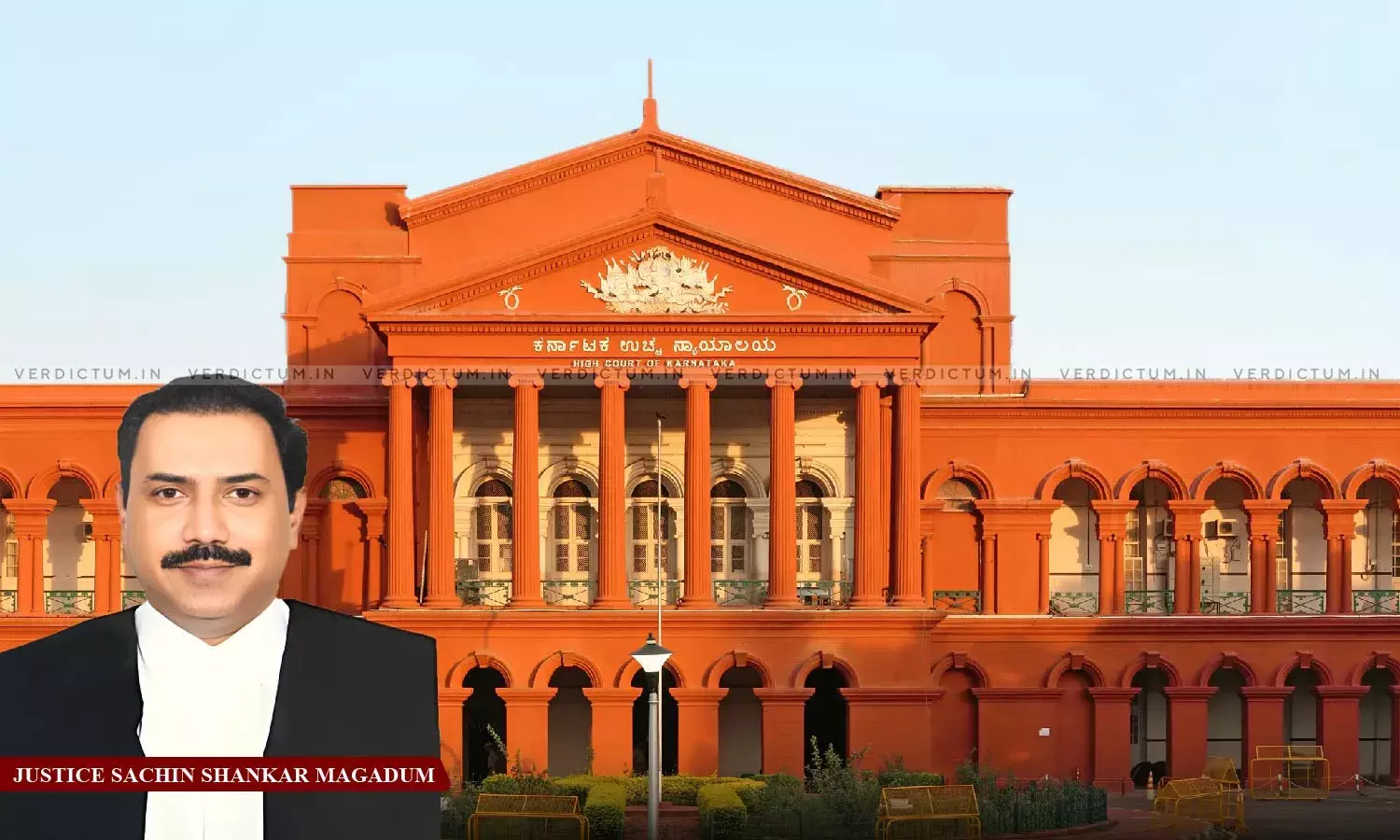Partition Suit| Court Can Re-Determine Shares While Passing Final Decree In The Event Of Changed Or Supervening Circumstances: Karnataka HC

Justice Sachin Shankar Magadum, Karnataka High Court
The Karnataka High Court has observed that, in a partition suit, a Court can re-determine the shares in the event of changed and supervening circumstances even if preliminary decree passed has attained finality.
The Court was deciding a second appeal assailing the decree passed by the lower court by entertaining applications seeking modification of preliminary decree.
A Single Bench of Justice Sachin Shankar Magadum held, "It is true that final decree is always required to be in conformity with the preliminary decree. But that does not mean that the preliminary decree before final decree is passed, cannot be altered or amended or modified by the trial Court in the event of changed or supervening circumstances, even if no appeal has been preferred from such preliminary decree."
The Bench said that the Karnataka Amendment in terms of Section 6(A) must be restricted to only those cases where suits were filed between July 30, 1994 and September 8, 2005 and are concluded on or before 2005 Amendment.
Advocate A. Madhusudhana Rao represented the appellants while HCGP Anukanksha Kalkeri and Advocates C. Shashikantha and U. Muthu Kumar represented the respondents.
Brief Facts -
The appellants instituted a suit for partition and separate possession and the said suit was decreed granting share to the daughters i.e., defendant Nos. 6 to 8 notionally. Based on the preliminary decree, the appellants initiated final decree proceedings and pending consideration of final decree proceedings, the legal heirs of original defendant No.6 i.e., 6(a) to 6(e) and defendant Nos.7 and 8 filed two separate applications requesting the Court to modify the preliminary decree and grant equal share by extending benefit of amended provisions of Section 6 of Hindu Succession Act. Though the appellants strongly resisted the applications, the FDP Court and the Appellate Court applied the principles laid down by the Apex Court in the case of Pushpalatha N.V. v. V. Padma and Others reported in ILR 2010 Karnataka 1484.
It was held that the amended provisions of Section 6(1) of Hindu Succession Act are applicable to the pending proceedings and benefit was extended and therefore, by treating defendant Nos.6 to 8 as coparceners, preliminary decree was modified. Though defendants had not challenged the same, the FDP Court and the Appellate Court having entertained the applications, granted equal share to the daughters i.e., deceased defendant No.6 and defendant Nos.7 and 8. Consequently, a fresh preliminary decree was drawn by FDP Court granting 1/9th share jointly to defendant Nos.6(a) to 6(e) and 1/9th share each to defendant Nos.7 and 8 and the said fresh preliminary decree drawn by the FDP Court was confirmed by the Appellate Court. Hence, the appellants were before the High Court.
The High Court in view of the aforesaid facts observed, “The sum and substance of the Amendment Act is existence of Hindu Undivided Family on the day of its commencement. Therefore, what can be inferred is that basic condition of application of 2005 Amendment Act is that a coparcenery must be in existence on the day when Amendment Act came into force. … By virtue of new provision, a daughter of a coparcener in a Joint Hindu Family governed by Mitakshari law now becomes a coparcener in her own right and thus enjoys equal rights to those hitherto enjoyed by a son of a coparcener.”
The Court noted that as partition suit is required to be decided in stages, the same can be regarded as fully and completely decided only when the final decree is passed. It further noted that if the law governing the parties is amended before conclusion of final decree proceedings, the party benefited by such amendment can make a request to the Court to take cognizance of the amendment and give effect to the same.
“If after passing of the preliminary decree in a partition suit but before passing the final decree, the rights of the parties are altered by statutory amendment, the Court is duty bound to decide the matter and pass final decree keeping in view the changed scenario. … The failure to appeal against a preliminary decree creates a bar under Section 97 of CPC from raising any objection to preliminary decree while determining the rights of the parties in a final decree proceedings. Section 97 does not lay down any judicial principle. It is a special provision framed in the interest of expediency. It therefore does not apply to the cases in the event of changed or supervening circumstances”, said the Court.
It also said that the bar under Section 97 applies only with reference to factual correctness of preliminary decree as well as with regard to its legal validity and therefore, it has no application while determining the shares of daughters in final decree proceedings dehors the finality given to the shares determined by the Court while passing a preliminary decree.
“… it is well within the jurisdiction of FDP Court to re-determine the shares even if preliminary decree passed in a partition suit has attained finality. … it can be safely concluded that for the cases covered under Hindu Succession (Karnataka Amendment) Act, 1990 from 30.07.1994 till 08.09.2005, the Hindu Succession (Karnataka Amendment) Act, 1990 has to be applied”, concluded the Court.
Accordingly, the High Court dismissed the second appeal.
Cause Title- Smt. Susheelamma Since Dead By LRs v. K. Seetharamaiah Since Dead By LRs.


